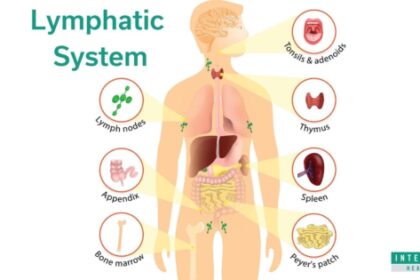As night falls and the world around us succumbs to sleep, our minds should ideally follow suit, gradually easing into a state of tranquility. However, for many individuals, the moment their heads hit the pillow, an entirely different scenario unfolds.
Thoughts and worries cascade like a relentless waterfall, leaving them grappling with a racing mind that seems impervious to the whispers of sleep. If you’ve ever found yourself lying awake at odd hours, your mind relentlessly replaying past events, contemplating future scenarios, or conjuring endless to-do lists, you’re not alone.
The elusive pursuit of a peaceful night’s rest can feel like a chore, leaving us feeling drained, irritable, and anxious during the day. This rampant mind racing can stem from a myriad of factors, ranging from stress and anxiety to lifestyle habits and even medical conditions. Yet, the paradox lies in the fact that the more we worry about falling asleep, the more elusive it becomes.
Luckily there are effective, natural strategies to break free from its clutches. We’ll delve into both time-tested techniques and contemporary scientific insights to help you discover the serenity necessary for a good night’s sleep. Remember, the path to restful slumber begins with understanding the inner workings of our minds and embracing practical steps to calm the chaos within.
Taming a racing mind and achieving a restful night’s sleep may require some experimentation and practice, but with consistency, you will be sure to see results and finally find calmness and enjoy a peaceful slumber.
Here Are 10 Natural Ways To Get To Sleep Faster
- Establish a Relaxing Bedtime Routine: Create a consistent pre-sleep routine to signal to your mind and body that it’s time to unwind. Engage in calming activities such as reading a book, taking a warm bath, practicing gentle stretches, deep breathing or listening to soothing music.
- Practice Mindfulness Meditation: Mindfulness meditation can help anchor your thoughts to the present moment and reduce racing thoughts. Spend a few minutes before bedtime meditating, focusing on your breath, and gently letting go of any distractions that arise.
- Limit Screen Time Before Bed: Electronic devices emit blue light, which can disrupt the production of melatonin, a hormone that regulates sleep. Minimize screen time at least an hour before bedtime to promote better sleep.
- Create a Sleep-Conducive Environment: Ensure your bedroom is comfortable, cool, and dark. Invest in blackout curtains, earplugs, or a white noise machine if external noises are disturbing your sleep.
- Journal Your Thoughts: Write down your worries, thoughts, or to-do lists before bedtime. By transferring these concerns from your mind to paper, you can release the burden of racing thoughts and clear your head.
- Practice Deep Breathing: When you lie in bed and feel your mind racing, focus on your breath. Take slow, deep breaths, inhaling through your nose and exhaling through your mouth. This simple technique can help calm your nervous system.
- Limit Stimulants and Heavy Meals: Avoid caffeine and nicotine close to bedtime, as they can disrupt sleep patterns. Additionally, refrain from heavy meals or excessive fluid intake a few hours before sleeping to prevent discomfort.
- Embrace Progressive Muscle Relaxation: Tense and relax each muscle group in your body, starting from your toes and working your way up to your head. This relaxation technique can help release physical tension and ease your mind.
- Create a “Worry Time” During the Day: If worries and thoughts persist during the night, designate a specific time during the day to address them. Write them down and reassure yourself that you’ll deal with them during your designated “worry time.”
- Establish Consistent Sleep Patterns: Aim to go to bed and wake up at the same time every day, even on weekends. A regular sleep schedule helps regulate your body’s internal clock and makes falling asleep easier.
Remember, the key to success lies in patience and consistency. Implementing these strategies and making them a part of your nightly routine can gradually quiet your racing mind, allowing you to experience the rejuvenating power of uninterrupted, restorative sleep. If sleep difficulties persist, don’t hesitate to seek advice from a healthcare professional or a sleep specialist to address any underlying issues.
If You Struggle With Stress, Radiate 21 Can Help You Cope Better Naturally With Adaptogenic Herbs And Botanicals.
Click Here To Learn More
Incorporating certain foods into your diet can indeed support a healthy sleeping pattern.
- Bananas: Rich in potassium and magnesium, bananas can help relax muscles and promote a sense of calmness, which is beneficial before bedtime.
- Cherries: Cherries are a natural source of melatonin, the hormone that regulates sleep-wake cycles. Consuming tart cherry juice or whole cherries may improve sleep quality. Tart Cherry Powder Is Great To Mix In Drinks
- Almonds: Almonds are a good source of magnesium, which can help relax muscles and promote sleep. They also provide healthy fats and protein, which can help stabilize blood sugar levels during the night.
- Kiwi: Kiwis are packed with vitamins, minerals, and antioxidants. They are also a source of serotonin, which helps regulate sleep and mood.
- Fatty Fish (Salmon, Tuna): Fatty fish are rich in omega-3 fatty acids, which have been linked to better sleep. Additionally, they contain vitamin D, which may improve sleep quality. Try These Omega-3 Triple Strength Capsules!
- Whole Grains: Complex carbohydrates found in whole grains, such as brown rice, quinoa, and oats, can increase the availability of tryptophan in the bloodstream. Tryptophan is a precursor to serotonin, which helps induce sleep.
- Turkey: Turkey is a well-known source of tryptophan, an amino acid that can promote relaxation and sleepiness. It’s a great option for an evening meal.
- Leafy Greens (Spinach, Kale): Leafy greens are rich in calcium, which helps the brain use tryptophan to produce melatonin. They also contain magnesium, which can have a calming effect. Check Out This Organic Spinach Powder
- Low-Fat Dairy (Yogurt, Milk): Dairy products like yogurt and milk contain tryptophan and calcium, which can support the production of melatonin and improve sleep quality.
- Herbal Teas (Chamomile, Valerian Root): Herbal teas like chamomile and valerian root have mild sedative effects and can help relax the body before bedtime.
- Dark Chocolate (in moderation): Dark chocolate contains small amounts of serotonin and melatonin, which can contribute to improved sleep quality. However, consume it in moderation due to its caffeine content.
Remember, while incorporating these foods into your diet can positively impact your sleep, it’s also essential to maintain a balanced diet, avoid heavy or spicy meals close to bedtime, and practice good eating habits to support overall well-being and restful sleep. Additionally, avoiding stimulants like caffeine and alcohol before bedtime can further enhance the effectiveness of sleep-friendly foods.
In conclusion, attaining a peaceful night’s sleep begins with recognizing the significance of taming a racing mind. The pursuit of tranquility amid life’s chaos is a journey worth undertaking, as quality sleep is the cornerstone of overall well-being and vitality.
By incorporating the suggested techniques into your nightly routine and embracing sleep-friendly foods, you can create an environment conducive to relaxation and rejuvenation. Remember, consistency and patience are key. Change takes time, and conquering a racing mind may require practice and adaptation.
Embrace the beauty of a mindful bedtime routine, the soothing power of meditation, and the simplicity of nourishing sleep-friendly foods. With time, you’ll find yourself drifting into slumber more effortlessly, savoring the moments of deep rest, and waking up each morning feeling revitalized.






